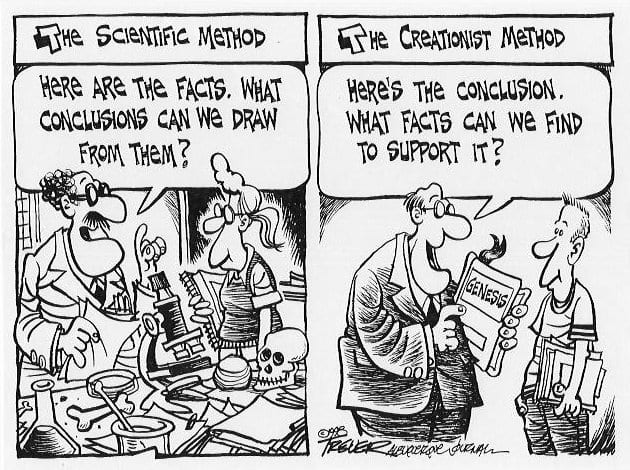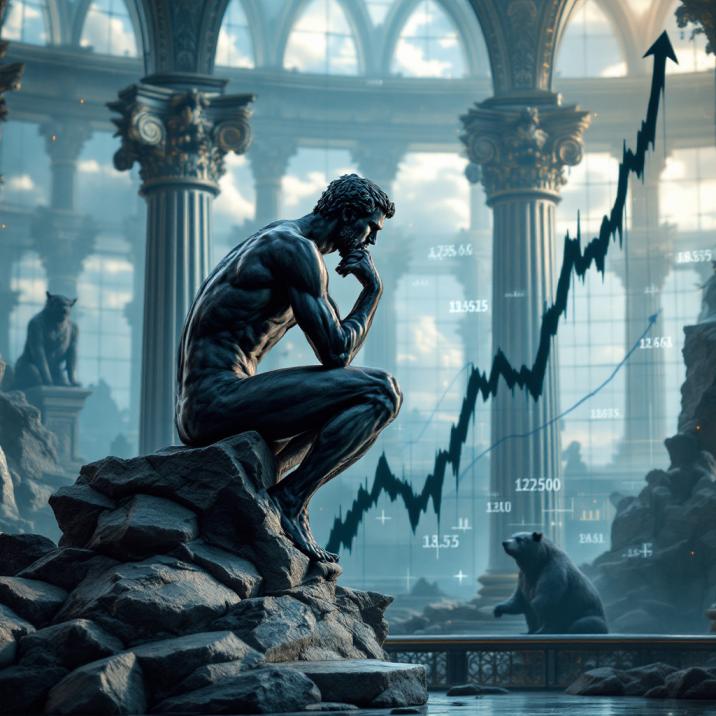A Free Thinker Questions, While the Masses Obey
Nov 25, 2024
This video delves into the article The Misunderstood Differences Between Light and Darkness, highlighting the blurred lines between perception and reality. Below is a brief excerpt that underscores its thought-provoking premise:
In today’s fast-paced world, video-based articles are revolutionizing content consumption. Recent statistics reveal a growing preference for video formats, pushing us to adapt swiftly. Recognizing that trends in motion are unstoppable forces, we’ve decided to transform many of our articles—especially the most impactful ones—into engaging videos. Resistance to such progress isn’t just futile; it’s counterproductive.
The image below illustrates a troubling phenomenon: dreamers shaping unscientific concepts into narratives. Instead of using facts to inform conclusions, they reverse the process—crafting theories first, then cherry-picking data to validate them. This flawed methodology twists narratives, creating echo chambers where truth is secondary to persuasion.

By embracing this shift in communication and challenging the narratives fed to us, we aim to empower free thinkers to question rather than blindly obey. Watch the video and join the conversation that dares to defy conformity.
The Hidden Truths: Light, Darkness, and the Contrarian’s Perspective
We are often urged to “walk in the path of light,” but what if this advice is widely misunderstood? The masses instinctively equate light with good and darkness with evil, accepting this dichotomy without question. But true contrarians—those who dare to challenge societal norms—would pause and examine this premise critically.
Applying logic, science, and mass psychology, these perceptions deserve deeper scrutiny. Science reveals an astonishing fact: roughly 95% of the universe exists as darkness. Shouldn’t this singular truth provoke reflection? What if the true essence of existence lies not in the light but in the depths of the unknown?
Consider the limits of human cognition. On average, humans use just 5-7% of their brain’s capacity, with even the most brilliant minds tapping into a mere 15%. Extrapolating this, even the most advanced individual might only grasp 0.05% of the 5% of the universe illuminated by light.
This paradox suggests that what we understand—and what we claim to know—is but a fraction of reality’s vastness. Perhaps the real wisdom lies not in walking the “path of light” but in venturing into the uncharted realms of darkness, embracing curiosity, and questioning the limits of perception.
The contrarian asks: Is the light a beacon of truth, or merely a distraction from the infinite mysteries of the dark?
To a Free Thinker: Religion’s Paradox and Complexity
Random Thoughts: Reflections from Other Authors
Keith Ward’s Is Religion Dangerous? grapples with the provocative question: “Is religion a force for good, or does it bring more harm than benefit?” Published in 2006, this book dives deeply into history, philosophy, sociology, and psychology, unpacking the evidence with precision.
Ward begins by confronting religion’s most damning accusation: its connection to violence. From the Crusades to modern extremism, religion has often been both sword and shield in humanity’s bloodiest conflicts. Yet, Ward challenges readers to look beyond the obvious. Is religion itself the villain, or are human ambitions merely cloaked in divine justification?
Next, Ward addresses charges of irrationality and immorality. Critics argue that religion perpetuates blind faith, suppresses progress, and enables systemic injustices. But Ward counters with a thought-provoking defence: while religion has dark chapters, it has also inspired profound acts of compassion, community, and creativity. Without it, he suggests, humanity’s moral compass might have been rudderless, its hope for the future dimmed.
The book explores the duality of religion as both destroyer and redeemer, forcing readers to confront their biases. Ward’s conclusion is daring: religion, for all its flaws, has been a cornerstone of human resilience and progress. Without it, he posits, the human race might be not only worse off but also adrift in a sea of despair.
The debate over religion’s impact is as old as the concept itself. Ward’s analysis urges us to question whether religion is inherently dangerous—or if it simply mirrors the complexity of human nature.
The dangers of religion, according to Scientific American
I don’t know which is more dangerous, that religious beliefs force some people to choose between knowledge and myth or that pointing out how religion can purvey ignorance is taboo. To do so risks being branded as intolerant of religion. The kindly Dalai Lama, in a recent New York Times editorial, juxtaposed the statement that “radical atheists issue blanket condemnations of those who hold religious beliefs” with his censure of the extremist intolerance, murderous actions and religious hatred in the Middle East.
Aside from the distinction between questioning beliefs and beheading or bombing people, the “radical atheists” in question rarely condemn individuals, but rather actions and ideas that deserve to be challenged. scientific American
Religion can be extremely dangerous.
If you choose a mistaken path, you can be cheated by it your whole life. Not only that, you are also cheated for many future lives because you will make mistakes in this life, and how your future turns out depends on this life. Whether your future lives will be good or bad depends on how you lead this one. You might create an unfortunate rebirth and suffer in hell or animal realms. If you have incorrect beliefs, believing wrong things are right, like believing that there is no such thing as liberation from cyclic existence, that affects your next life. It can be hazardous, not only for yourself but also if you lead others according to the wrong views. You can bring so many sentient beings to suffering in the lower realms, to hell and to rebirth as hungry ghosts. Lamayeshe
To A Free Thinker, Religion is limiting.
Freedom is not free, and work is needed to break free from the chains that bind you.
To a free thinker, religion is a cage, binding the spirit and dulling the mind. Freedom is never handed freely; it must be seized by shattering the chains that enslave.
If you crave liberation, the first step is attaining financial freedom—your weapon against the elite puppeteers who scheme to trap you in their endless cycle. They cast you as a hamster, sprinting endlessly on their spinning wheel, deluded into believing progress awaits, while in truth, you remain imprisoned.
We offer you the key: harness mass psychology to turn disasters into golden opportunities. See through the media’s web of manipulation, protect your well-being, and claim your power. Explore our Investing for Dummies section, which is rich with free tools and profound insights into human behaviour.
Subscribe to our free newsletter and arm yourself with knowledge. Change begins today, not tomorrow—for tomorrow is a lie whispered to the complacent. Break the cycle. Resist the fleecing. The choice is stark: rise and reclaim your destiny or surrender to the comfortable chains of inaction.
“Give a man a fish & he will eat for a day; Teach a man to fish & he will eat for a lifetime; Give a man religion & he will die praying for a fish.”
Other Articles of Interest
Great books on life and Investing: Short, sweet & simple













